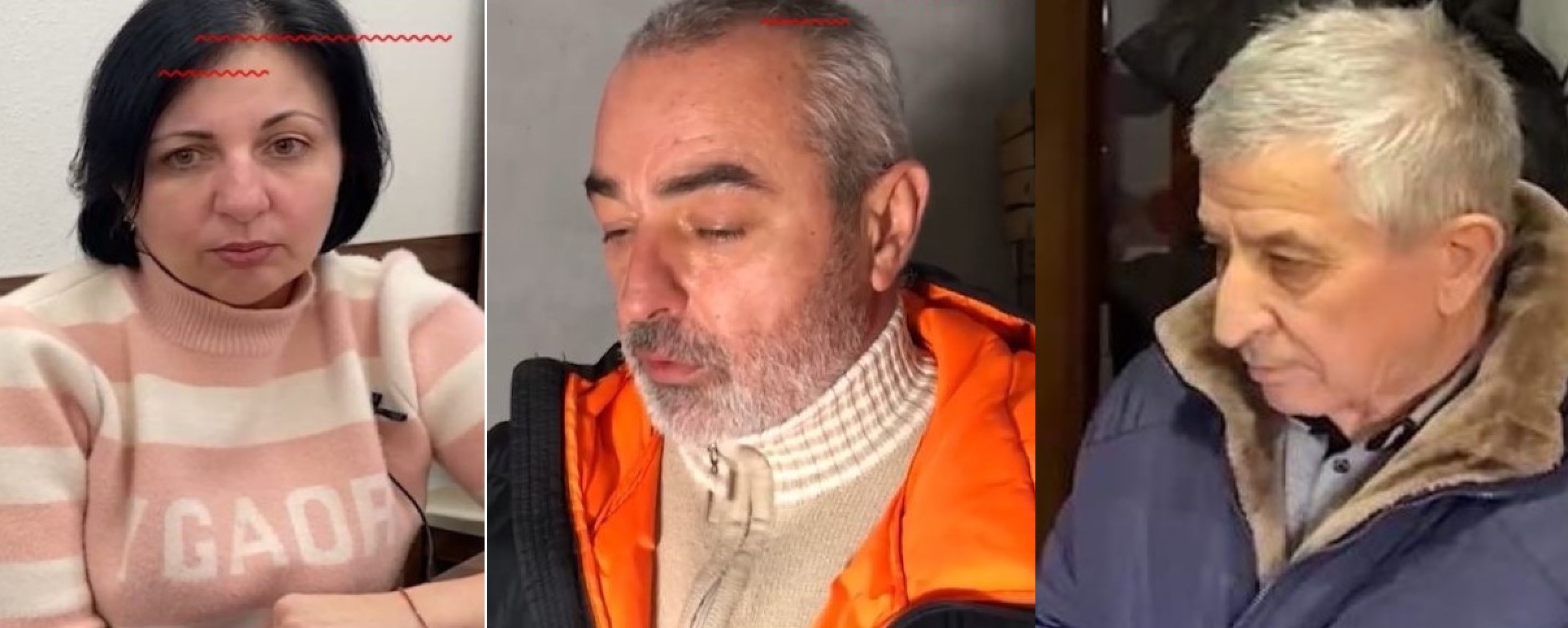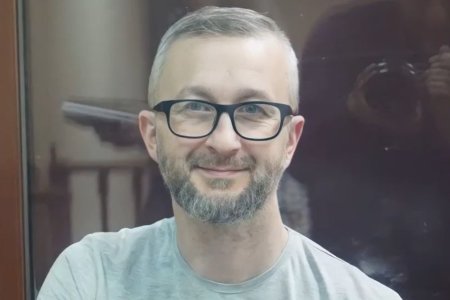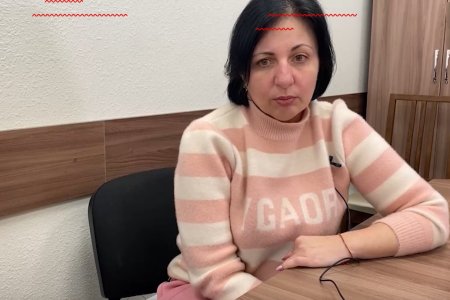
The three people are identified as Volodymyr Bodnar (b. 1974); his wife Oksana Shevchenko, and a second man, identified only by surname and initials V.V. Ananiev. Photos from the FSB video are shown of all three, with Ananiev described as disabled and walking with a stick. Although the Russian state media claim that all three admit to the charges, only Bodnar is shown ‘confessing’.
During this brief ‘confession’, Bodnar gets flustered in one place, as though unable to remember what he should say, while elsewhere his speech is suspiciously smooth, as though he is reciting a learned text. That impression is also strengthened when he repeats part of his story. He explains that he was born in Zaporizhzhia on 12 April 1974 and is registered in that city. He was supposedly told by SBU officers to take “an explosive device of American or German make” to Melitopol which he allegedly did. He claims that he cut a hole out of a gas cannister and placed what he calls ‘a mine’ in it, wrapped this in a rag and carried it to Crimea.
No mention is made of the fact that Zaporizhzhia remains under government control, while Melitopol in Zaporizhzhia oblast and Crimea are both under Russian occupation. It is unclear how Bodnar would have even been able to get through Russian checkpoints, let alone smuggle in ‘an explosive device’ wrapped in a rag. Yet at least one of the Russian/pro-Russian media report that, according to Shevchenko, her husband took the device to occupied Crimea back in May 2023 and hid it in a rented garage. Then in October 2023, he purportedly received SBU instructions to detonate the device near one of the cars in the cortege of one of the leaders of Crimea. They were purportedly planning to carry this out from 26 January to 1 February 2024, but were detained by the FSB. She also claimed that her husband had been recruited by the SBU after being detained by SBU officers when trying to pass through the Vasylivka checkpoint.
The FSB claimed to have removed a homemade explosive device, as well as a remote control which was supposed to detonate the device through a phone call. Videos in which FSB operatives are shown allegedly ‘finding’ weapons, explosives, telephones, etc. have been part of the repertoire since 2014, with essentially no possibility of verifying the supposed discoveries. In at least one case, Oleksiy Stohniy, from Sevastopol, was shown being violently ‘detained’ in broad daylight although it is known that he was seized at night.
The three Ukrainians have been charged under Article 205 § 2 a, (and Article 30 § 1) of Russia’s criminal code – attempt to commit an act of terrorism, as well as Article 222.1 § 3a (unlawful possession, etc. of weapons, explosive devices, etc.). While there is no possibility of independently verifying the ‘evidence’ for such charges, the implausibility of part of the ‘plot’ are already grounds for doubting them.
The other reason for scepticism is that this is one of very many such stories where the FSB claim to have ‘thwarted’ terrorist attacks, with no ‘evidence’ except that provided by men and women held incommunicado, without access to independent lawyers. Nariman Dzhelyal, world-renowned Crimean Tatar Mejlis leader and journalist is just one of many Ukrainians imprisoned in Russia on preposterous ‘sabotage’ charges, based solely on ‘confessions’ which both Asan and Aziz Akhtemov retracted, as given under savage torture, as soon as they were allowed to see proper lawyers.
Information about Nariman Dzhelyal, Asan and Aziz Akhtemov
Volodymyr Dudka, Oleksiy Bessarabov and Dmytro Shtyblikov
Russia wanted a new ‘Crimean saboteur trial’, so they looked around for three Ukrainians
Iryna Danilovich
The above are only some of a very large, and ever-increasing, number of Ukrainian citizens imprisoned on fake ‘Ukrainian saboteur’ charges.



